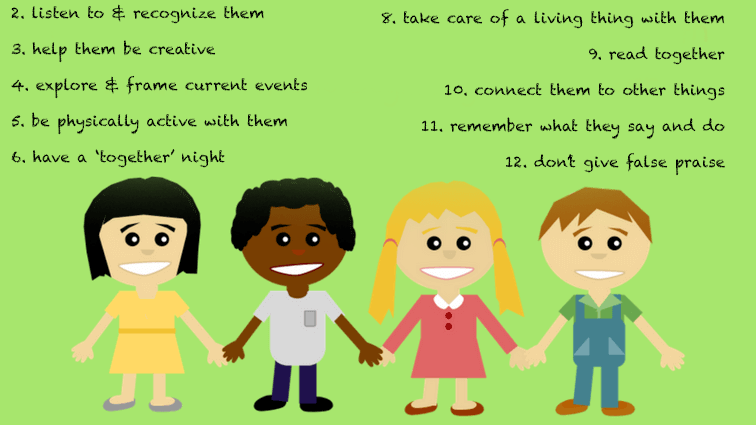ינהאַלט
Building trusting relationships with children is a worthwhile goal for parents. We will have to recognize the child’s right to negative emotions and learn how to adequately respond to crying and even tantrums. Psychologist Seana Tomaini has compiled a list of five messages that you should definitely pass on to your children.
When I first saw my daughter, I thought, «I don’t recognize you.» She was not like me in appearance and, as it soon became clear, behaved quite differently too. As my parents said, as a child I was a calm child. My daughter was different. She would cry all night long as my husband and I tried unsuccessfully to calm her down. Then we were too exhausted to realize the main thing — with her cry, the daughter let us know that she was a separate, independent person.
Our interaction with children determines the way they interact with the outside world in the future. That is why it is important to explain to children that we love them for who they are. We must help them learn to trust adults, manage their emotions, and treat others with compassion. Confidential conversations will help us with this. Topics may change as children grow, but there are five main messages that are important to repeat over and over.
1. You are loved for who you are and who you will become.
«I don’t like it when you fight with your brother, but I still love you.» “You used to love this song, but now you don’t like it. It’s so interesting to see how you and your preferences change over the years!
Letting your children know that you love them for who they are and who they will become in the future builds trust and forms a secure attachment. Build relationships based on joint activities, do together what the children want to do. Pay attention to their hobbies and interests. When you’re with your kids, don’t be distracted by work, household chores, or the phone. It is important to show children that you are completely focused on them.
Children who have built secure attachment relationships with their parents tend to have higher self-esteem and stronger self-control. They tend to show empathy and compassion. They have developed critical thinking skills and more noticeable academic success compared to children who have not built such relationships with their parents.
2. Your feelings help your parents understand what you need.
“I hear that you are crying and I am trying to understand what you are asking for at the moment. I’ll try to hold you in a different way. Let’s see if that helps.» “When I want to sleep, I become very capricious. Maybe now you want to sleep too?
It’s nice to be around kids when they’re in a good mood, easy to get along with, and fun to be around. But children, like adults, experience unpleasant feelings: sadness, disappointment, despair, anger, fear. Often children express these feelings through crying, tantrums, and naughty behavior. Pay attention to children’s emotions. This will show that you care about their feelings and that they can count on you.
If childhood emotions baffle you, ask yourself the following questions:
- Are my expectations for children realistic?
- Have I taught the children the necessary skills?
- What skills do they need to practice more?
- How do children’s feelings affect them right now? Maybe they are too tired or distressed to think clearly?
- How do my feelings affect how I react to children?
3. There are different ways to express feelings.
“It’s okay to get upset, but I don’t like it when you scream. You can just say, «I’m upset.» You can express your feelings by stamping your foot or clutching a pillow instead of screaming.»
“Sometimes in moments of sadness, I want to tell someone about my feelings and hug. And sometimes I just need to be alone in silence. What do you think can help you now?”
For babies, crying and screaming is the only way to express negative feelings. But we do not want older children to express feelings in this way. As their brain develops and their vocabulary grows, they gain the ability to choose how they express their emotions.
Talk to your child about the rules for expressing emotions in your family. How can children and adults express emerging emotions? Use art books to show your child that everyone has feelings. Reading together provides an opportunity to talk about the difficult feelings that different characters face and practice problem solving without becoming emotionally involved in the situation.
About the author: Shona Tomaini is a psychologist and teacher at the University of Oregon who develops programs to develop social and emotional skills in children and adults.










